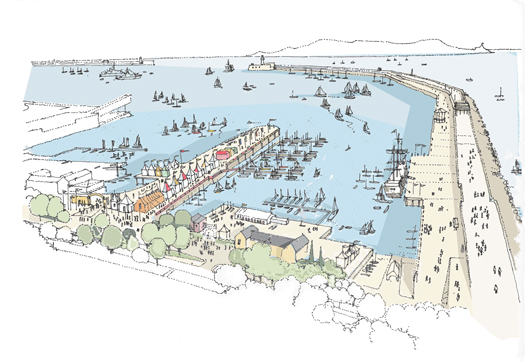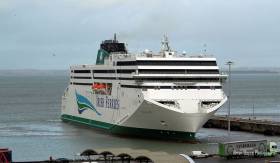Displaying items by tag: market
#ferry - The decision by Irish Ferries not to run ferry services from Rosslare to France from next year writes The Irish Times, is based simply on the judgment that a Dublin service will be more profitable, industry figures believe.
The company’s parent Irish Continental Group paid €147million for the WB Yeats, its new “cruise ferry” which can cater for 1,885 passengers and 1,200 vehicles, and which has just arrived in Ireland (see, Rosslare call yesterday).
Maritime sources said the decision may have boiled down to a simple one: which port, Dublin or Rosslare, can deliver the most business – and so payback – for the new ship.
Irish Ferries will continue to serve Pembroke in south Wales from Rosslare while Stena will continue services on its Rosslare to Fishguard and Rosslare to Cherbourg, France, route.
In a statement on Monday, Irish Ferries informed potential passengers it was unlikely to operate a service between Rosslare and France in 2019. The company said it would continue to keep this situation under review.
The new WB Yeats ship will operate from Dublin to Cherbourg up to four times per week.
Further coverage on the story can be read here.
Dublin Bay it set to burst alive with 'joie de vivre' during the only foreign stopover in the world-famous Solitaire du Figaro yacht race.
Dun Laoghaire will be the only international stop in the race, considered the unofficial world offshore solo championship, between 11 and 14 August.
To celebrate the visit of the iconic 3,390km race, Dun Laoghaire Rathdown County Council (dlrcoco), the Dun Laoghaire Harbour Company and the National Yacht Club have joined forces to create the Festival des Bateaux.
The harbour will be a magnificent tapestry of colour as the boats arrive for this international event. Dun Laoghaire will be resplendent with fireworks, music and the sights, sounds, foods and ‘joie de vivre’ of France.

How Dun Laoghaire will look in August
Fireworks will light up the sky at 10pm on Friday 12 August. There will also be a festival village with public access to visiting boats, a colourful and authentic French market and exhibition, a festival stage at Harbour Plaza and activities throughout Dun Laoghaire, not to mention a spectacular farewell as the boats depart early on Sunday 14 August.
Meanwhile, plans to berth the 45 or so competitors expected are well underway, according to the National Yacht Club.
Funding was secured between dlrcoco and Fáilte Ireland, and the tender for the supply and delivery of 18x11.5m pontoons and associated service bollards was won by McNiven Marine, Irish agents for Ronautica Marine.
The gangway contract was secured by Tynes Gangway, and the last contract for the installation and de-commissioning of the infrastructure is currently underway.






























































